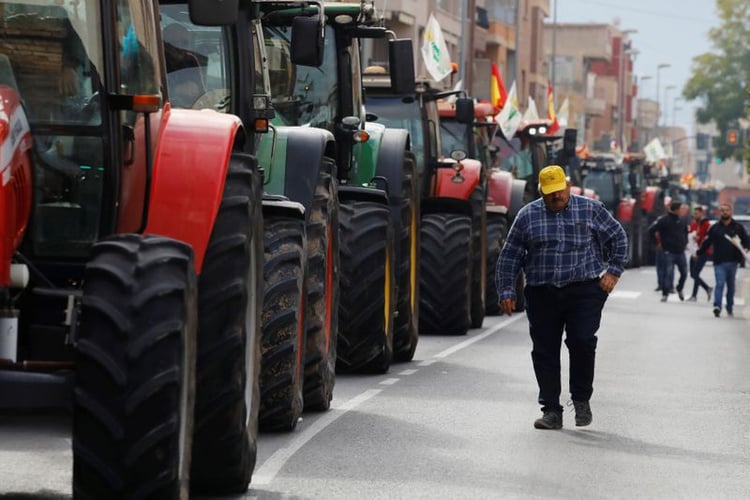Thousands of angry farmers across Andalucia and the rest of the country have pushed the issue to the forefront in recent weeks.
Those in the agricultural sector have taken to the streets in passionate protests against the continued struggle they face to stay afloat.

Their fury over rock bottom olive and orange prices has proved a headache to government leaders as they in turn face pressure from the European board.
In an attempt to prove that the farmers voices are being heard, Agriculture Minister Luis Planas issued a statement on Monday to update the country on what steps are being taken to ensure that the issue does not continue.
The coalition government’s first step is to reform the current Food Chain Law by raising prices ‘at the gate’ and helping manufacturers cover costs of production and staff wages.
“The reform will allow agricultural and livestock producers to have a stronger negotiating position, and create greater balance in the food chain,” said Planas.

However, the government cannot regulate prices by law, therefore it must
only strongly suggest measures and hope that companies take them onboard.
Naming and shaming buyers that insist on paying minimal prices and the
inclusion of production prices on purchase ledgers are some of the ideas being discussed in congress.
However Planas said: “We are dealing with adults, they can be advised
but not forced to comply with regulations.”
In a recent investigation by the COAG (The Coordinator of Farmers and Livestock Organizations) has revealed the incredible price hikes issued by leading supermarket chains of produce such as olives, oranges and avocados.
New regulations are hoping to make pricing more transparent and put
large chains under pressure to make pricing fairer.
Spanish farmers have been holding nationwide protests in the past few
weeks in response to low prices, the threat of fewer subsidies from the
European Union’s Common Agricultural Policy (CAP), and the announced
minimum-wage hike.
Government officials, including Prime Minister Pedro Sanchez, have been
heavily negotiating in Brussels this week to fight against the proposed
reduction in funding from the CAP.
As part of the government’s 2021 to 2027 budget, the CAP will see cuts
of up to 14%, putting farmers’ subsidies at risk.
Sanchez risks upsetting regional governments by combating the CAP
reduction by lowering the regional budgets to compensate, putting
already tentative relationships further on the brink of collapse.
Despite all the coalitions efforts, Planas has been realistic in his
expectations of reform, and reminds farmers that changing the market
will take time before real reform can take place.
Click here to read more News from The Olive Press.








